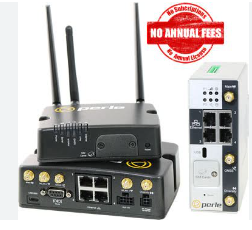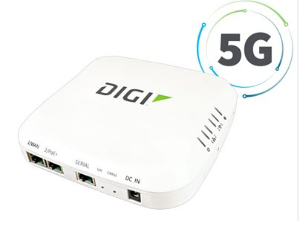4G vs. 5G LTE Routers: Exploring the Future of Wireless Connectivity
Introduction
In today’s fast-paced world, reliable and high-speed internet connectivity is crucial for both personal and professional endeavors. With the advent of 4G and 5G technologies, wireless routers have become an essential tool for accessing the internet. In this blog post, we will explore the differences between 4G and 5G LTE routers, their features, benefits, and the future of wireless connectivity.

Understanding 4G LTE Routers
4G LTE routers utilize the fourth-generation Long-Term Evolution (LTE) technology to provide high-speed internet access. These routers use cellular networks to deliver internet connectivity to multiple devices simultaneously. 4G LTE routers are widely used in areas where wired broadband connections are unavailable or unreliable.
The key features of 4G LTE routers include:
- High-speed Connectivity: 4G LTE routers offer impressive download and upload speeds, making them suitable for activities such as video streaming, online gaming, and remote work.
- Wide Network Coverage: These routers can connect to cellular networks, enabling access to the internet in areas with good network coverage.
- Multiple Device Support: 4G LTE routers come with multiple Ethernet ports and Wi-Fi capabilities, allowing multiple devices to connect simultaneously.
- Portability: Many 4G LTE routers are compact and portable, making them convenient for use while traveling or in temporary locations.
Exploring the Advantages of 5G LTE Routers
5G LTE routers represent the next generation of wireless connectivity, offering even faster speeds and lower latency compared to their 4G counterparts. Here are some key advantages of 5G LTE routers:
- Enhanced Speed and Capacity: 5G technology provides significantly faster download and upload speeds compared to 4G, enabling seamless streaming, gaming, and other data-intensive activities.
- Lower Latency: 5G networks offer lower latency, reducing the delay between sending and receiving data. This low latency is crucial for real-time applications, such as video conferencing or autonomous vehicles.
- Increased Network Capacity: 5G LTE routers can handle a higher number of connected devices simultaneously without compromising speed or performance. This is particularly beneficial in crowded areas or smart home environments.
- Improved Efficiency: 5G technology is designed to be more energy-efficient, allowing devices to consume less power while maintaining high-speed connectivity.

The Future of Wireless Connectivity
As technology continues to evolve, the future of wireless connectivity looks promising. Here are some developments that are expected to shape the future of 4G and 5G LTE routers:
- 5G Expansion: 5G networks are being deployed worldwide, offering faster speeds and improved connectivity. The rollout of 5G infrastructure will enhance the capabilities of 5G LTE routers, making them more accessible and widespread.
- Internet of Things (IoT) Integration: With the proliferation of IoT devices, both 4G and 5G LTE routers will play a crucial role in connecting these devices to the internet. The ability to handle a large number of connected devices will become even more important as IoT adoption continues to grow.
- Edge Computing: Edge computing, where data processing is done closer to the source rather than relying on cloud servers, is gaining popularity. 4G and 5G LTE routers can facilitate edge computing by providing fast and reliable connectivity to edge devices.
- Smart Cities and Autonomous Vehicles: The development of smart cities and the rise of autonomous vehicles will heavily rely on robust wireless connectivity. 5G LTE routers will be instrumental in providing the necessary infrastructure for these technologies to thrive.
Conclusion
4G and 5G LTE routers have revolutionized wireless connectivity, providing high-speed internet access in areas with limited wired options. While 4G LTE routers offer reliable connectivity, 5G LTE routers represent the future with their faster speeds, lower latency, and increased network capacity.
As 5G technology continues to expand and evolve, the capabilities of 5G LTE routers will improve, ushering in new possibilities for wireless connectivity. Whether it’s for personal use, remote work, or the development of smart cities, both 4G and 5G LTE routers will play a vital role in connecting people and devices in our increasingly digital world.
